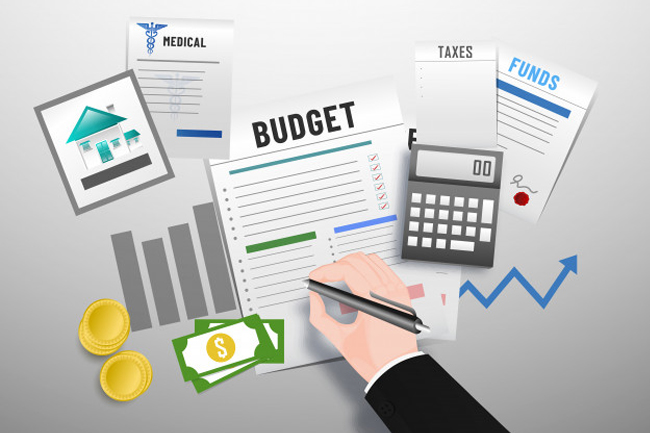Comprehensive Spending Plan Solutions to Improve Your Financial Monitoring
In the world of monetary management, the quest for effectiveness and optimization is a continuous journey for many individuals seeking to protect their economic future. By diligently evaluating your current financial standing, developing critical economic goals, and developing a practical budget plan plan, you can start to browse the intricacies of your financial resources with clarity and objective.
Analyzing Your Current Financial Circumstance
Setting SMART Financial Goals
Having analyzed your existing economic circumstance, the next step in the direction of attaining financial stability is establishing SMART financial objectives. Clever stands for Details, Measurable, Possible, Relevant, and Time-bound. Certain objectives plainly specify what you wish to attain (budget template). Rather of establishing an unclear objective like "save more money," a certain objective would certainly be "save $500 per month." Quantifiable goals enable you to track your development and stay encouraged. Possible objectives are reasonable and accessible based on your present financial situation. It is necessary to set goals that are tough yet achievable. Relevant goals straighten with your general economic purposes and priorities. Guarantee that your goals are meaningful and add to your monetary well-being. Time-bound objectives have a target date for completion, creating a feeling of seriousness and aiding you remain focused. By setting wise financial goals, you can produce a roadmap for your financial journey and work towards an extra protected and prosperous future.
Producing a Realistic Budget Plan
Developing a thorough and reasonable budget plan is look at more info essential to reliable financial administration. A realistic budget plan functions as a roadmap for your financial decisions, assisting you allot resources successfully and achieve your monetary objectives. To develop a realistic budget plan, beginning by calculating your total income from all resources. Next, listing all your costs, consisting of fixed expenses like rental fee or home mortgage payments, utilities, and financial obligation settlements, as well as variable costs such as groceries, enjoyment, and transportation. Separate in between crucial expenses and discretionary spending to focus on where your cash needs to go. Be truthful regarding your costs behaviors and take into consideration previous expenditures to accurately estimate future ones. Accept versatility in your budget plan to accommodate unexpected costs or changes in income. On a regular basis testimonial and change your budget plan as needed to remain on track towards your financial objectives. By developing a realistic budget strategy, you can properly handle your financial resources, decrease economic stress, and work in the direction of a safe financial future.
Tracking Expenses Successfully
Efficiently tracking expenditures is vital for preserving economic understanding and control over your budget. By carefully keeping an eye on where your money goes, you obtain important understandings into your investing practices, recognize locations for prospective cost savings, and ensure that you remain within your monetary restrictions - important source budget template. To track expenses successfully, start by categorizing your expenses into certain teams such as housing, transportation, grocery stores, utilities, and enjoyment. Utilize budgeting tools and applications that automate this procedure, making it simpler to videotape and analyze your costs patterns. Routinely examine your expenditures to compare them against your allocated quantities, permitting you to make adjustments as needed to remain on track. In addition, keeping all receipts and documenting cash money transactions can supply a thorough overview of your monetary activities. By remaining arranged and aggressive in tracking your expenditures, you empower yourself to make educated monetary choices and attain your budgeting objectives.
Building a Reserve
Structure a robust reserve is an essential facet of sound economic planning. A reserve acts as a safeguard, offering you with monetary safety and security in unanticipated circumstances such as medical emergency situations, task loss, or significant home repairs. To build a reliable reserve, beginning by setting a particular savings objective. Economists advise saving three to 6 months' worth of living costs. Consider automating your cost savings by establishing automated transfers from your bank account to your emergency fund. This makes certain consistency in conserving and decreases the lure to spend the money in other places.

Conclusion
In verdict, applying thorough budget plan solutions can substantially improve monetary administration. By analyzing the existing economic situation, establishing wise economic goals, producing a realistic budget strategy, tracking expenditures effectively, and developing an emergency fund, individuals can achieve greater financial stability and safety and security. It is essential to take positive steps towards improving financial administration in order to accomplish long-lasting monetary success.